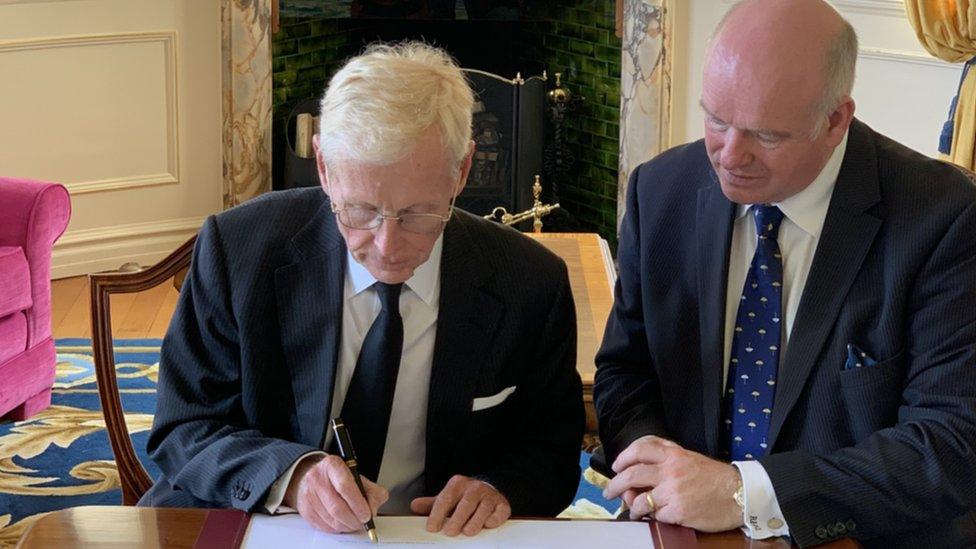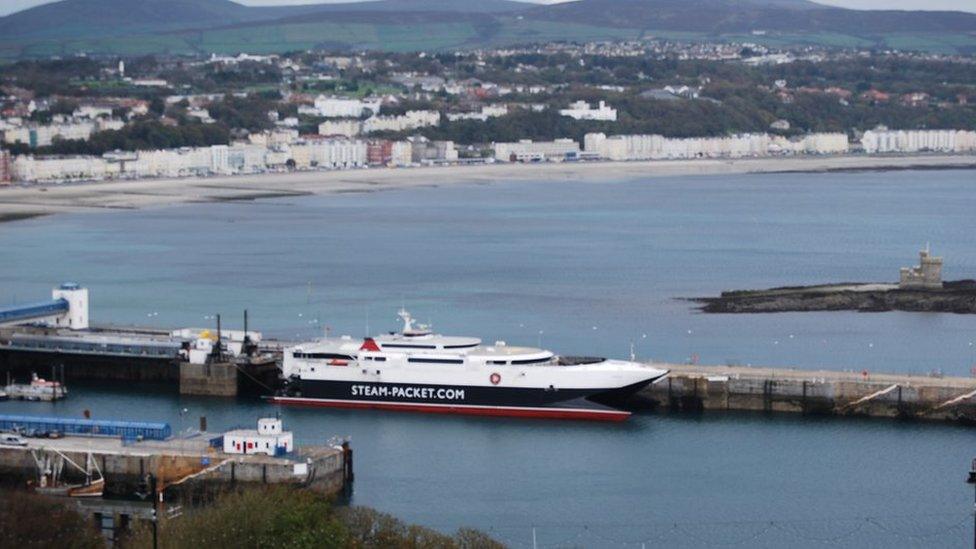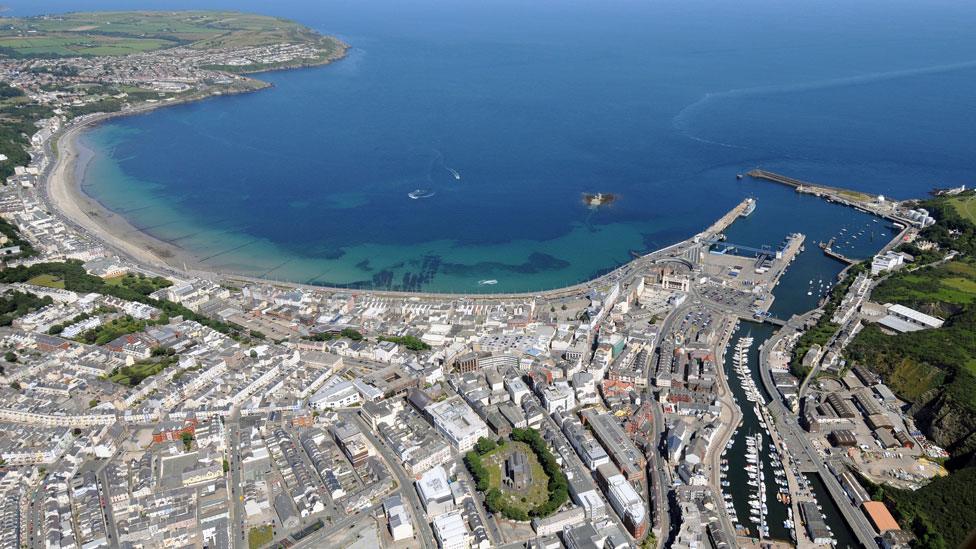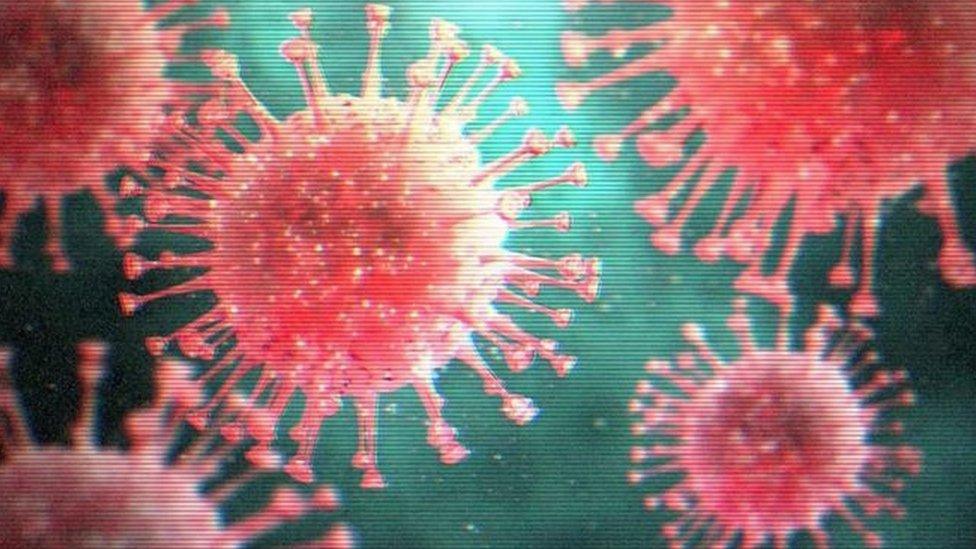Coronavirus: Isle of Man state of emergency ends
- Published

The revocation was signed by Lieutenant Governor Sir Richard Gozney (left) at Government House
The state of emergency on the Isle of Man has been lifted more than three months after it was first declared in response to the coronavirus outbreak.
Chief Minister Howard Quayle said the island was in an "enviable and rare position" as life returned to "relatively normal".
A threat from the virus remained but it was a chance to "breathe and pause for reflection", he added.
The island achieved "local elimination" of coronavirus on 17 June.

EASY STEPS: What should I do?
CONTAINMENT: What it means to self-isolate
MAPS AND CHARTS: Visual guide to the outbreak
VIDEO: The 20-second hand wash

A proclamation of emergency was first declared by Sir Richard Gozney on 16 March, three days before the Isle of Man registered its first coronavirus case, which allowed for regulations to be introduced at short notice.
Most coronavirus restrictions have been lifted but some still remain, including the island's border closure.
On Friday, Tynwald approved a motion to maintain several regulations for up to six months after the end of the emergency period.
Under Manx legislation, any regulations not approved by parliament would cease to have power following the revocation of the proclamation.
There have been 24 deaths due to coronavirus and 336 positive cases on the Isle of Man.

The proclamation of emergency on the Isle of Man was first declared on 16 March

Why not follow BBC Isle of Man on Facebook, external and Twitter, external? You can also send story ideas to northwest.newsonline@bbc.co.uk, external
- Published22 June 2020

- Published16 June 2020

- Published15 April 2020
